Hamas seems to reject new hostage deal offer, says it’ll only accept full IDF pullout
Terror group appears to pour cold water on mediators’ latest offer after Qatari PM says ‘good progress’ made; Israel said open to lengthy truce but refuses to end war
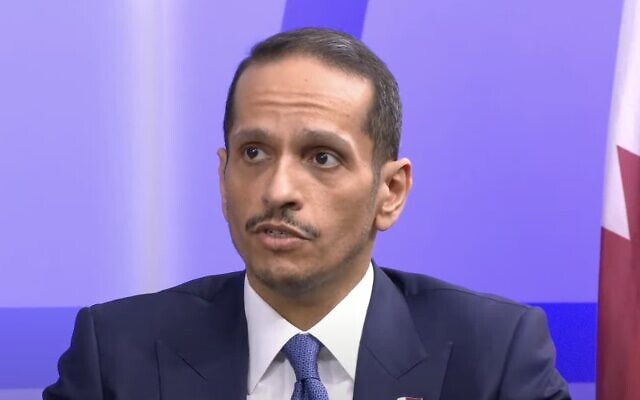
(THE TIMES OF ISRAEL) Hamas on Monday evening appeared to reject a new framework for a hostage deal that had been agreed to by Israel, saying it would not accept any agreement that did not include an end to the war and the withdrawal of all Israeli troops from Gaza.
The terror group issued a statement alongside a smaller terror group, the Popular Front for the Liberation of Palestine, insisting Israel must halt its “aggression” and pull out of Gaza before any exchange deal takes place.
A senior Hamas official added that the terror group wants a “complete and comprehensive ceasefire” in Gaza.
“We are talking first of all about a complete and comprehensive ceasefire, and not a temporary truce,” Taher al-Nunu told AFP, saying that once the fighting stops, “the rest of the details can be discussed” including a hostage release.
Earlier, the Qatari prime minister said that he believed Hamas had “moved” from its demand for a complete ceasefire as a condition, something that has been outright rejected by Israel.
Multiple Israeli networks reported earlier that Israel negotiators in Paris had agreed Sunday to a framework proposal for a hostage release deal.
The draft offer, hatched during a meeting of the heads of the Mossad and Shin Bet intelligence agencies with senior US, Qatari, and Egyptian officials, was being presented Monday to Hamas, according to NBC News. It was not immediately clear if Hamas’s statements were a direct response to the proposal.
The agreement would see all Israeli hostages released, starting with women, children, the elderly and the sick. There would be “phased pauses” in Israel’s war against Hamas while the process played out, the reports said.
Israel would also allow more aid into Gaza and would release very large numbers of Palestinian prisoners.
The framework reportedly does not provide for a permanent ceasefire, but also does not rule one out.
According to Channel 12 news, the offer centers around a 45-day pause in the fighting in exchange for 35-40 hostages in the first stage. Some 100-250 Palestinian prisoners would be released for every hostage. This would be followed by further releases in exchange for an extension of the truce, and a larger ratio of Palestinian security prisoner releases for each hostage.
Israel Hayom reported that the Mossad and Shin Bet chiefs told their Qatari, Egyptian, and American interlocutors that Israel is willing to be flexible on the length of the pause in fighting, the number of prisoners released, and the amount of humanitarian aid let in, but will not under any circumstances agree to end the war.
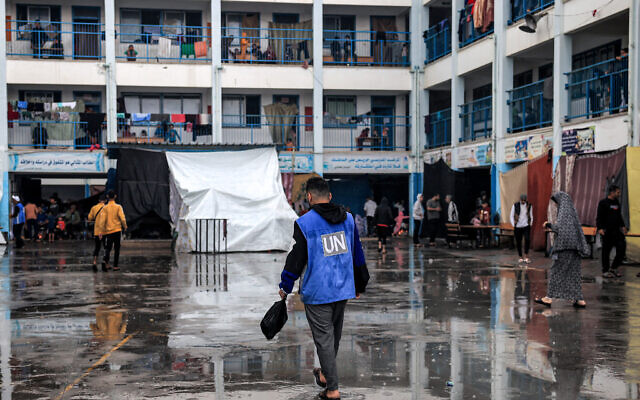
The Prime Minister’s Office issued a statement that did not deny that Israel had agreed to a framework for a hostage release, but did say that “the reports about a deal are incorrect and include [ostensible] conditions that are not acceptable to Israel.”
Israeli officials told The Times of Israel on Monday that they are being cautious. “There is still a long road ahead,” one official said.
At a press briefing, US Secretary of State Antony Blinken said he believed “the proposal is a strong one and a compelling one… but Hamas will have to make its own decisions.”
“We are in a much better place than we were a few weeks ago,” Qatari Prime Minister Mohammed bin Abdulrahman Al Thani said at the Atlantic Council in Washington, DC.
“Yesterday, good progress was made to get things back in shape and at least to lay a foundation for the way forward,” Al Thani added, saying the proposal would be relayed to Hamas.
He said that an agreement might lead to a permanent ceasefire “in the future.”
Al Thani demurred when asked about Netanyahu’s critical comments last week about Qatari mediation being “problematic,” saying only that he does not expect the prime minister to thank Doha.
US National Security Council spokesman John Kirby said Monday that the parties were “closer than we’ve ever been” to a new hostage deal, though he stressed it was not “about to happen any day now…. We are cautiously optimistic.”
He told Channel 12 news that the deal taking shape does not provide for a permanent ceasefire, but for a protracted halt. “This would be a lengthier humanitarian pause than we saw last time… a longer, temporary pause in the fighting… [It would be] an opportunity to get more hostages out… and humanitarian assistance in.”
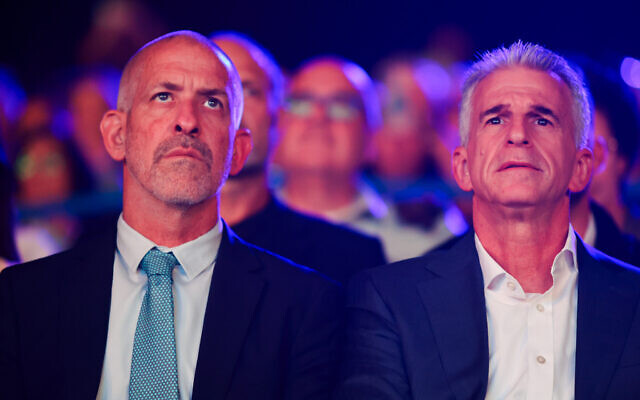
The war cabinet was slated to meet Monday evening, an Israeli official told The Times of Israel.
Netanyahu’s office on Sunday confirmed that a four-way meeting between the US, Israel, Qatar, and Egypt had taken place to discuss a potential deal. The PMO called those discussions “constructive.”
“There are still significant gaps that the sides will discuss this week in additional meetings,” the PMO added.
CIA Director Bill Burns discussed the contours of the emerging agreement in France with David Barnea, the head of the Mossad intelligence agency, Qatar’s Al Thani and Egyptian intelligence chief Abbas Kamel.
Israel also sent Shin Bet chief Ronen Bar as well as IDF hostage envoy Nitzan Alon to the summit.
It is believed that 132 hostages abducted by Hamas on October 7 are still being held in Gaza. Among other terms, Hamas has demanded an end to the war and the withdrawal of all IDF forces as a condition for their release — demands Israel has rejected.
Two senior US officials told The Associated Press on Saturday that American negotiators were making progress on the agreement. The officials, who requested anonymity to discuss the sensitive negotiations, told the AP that emerging terms of the yet-to-be-sealed deal would play out over two phases. The New York Times also reported on Saturday that progress had been made.
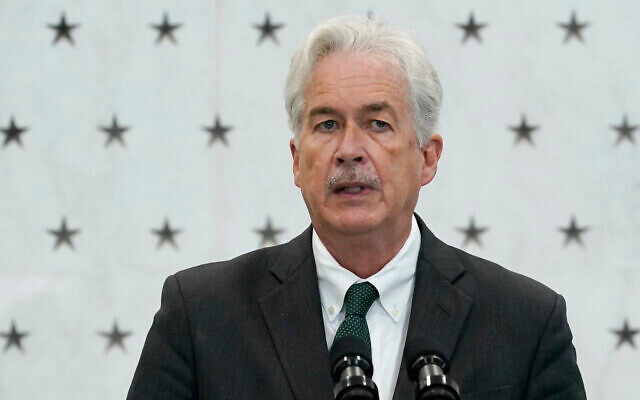
In the first phase, AP said, fighting would stop to allow for the remaining women, elderly and wounded hostages to be released by Hamas, in exchange for the release of large numbers of Palestinian security prisoners.
Israel and Hamas would then aim to work out details during the first 30 days of the pause for a second phase in which Israeli soldiers and civilian men would be released, in exchange for far larger numbers of Palestinian security prisoners.
While the proposed deal would not end the war, US officials were said to be hopeful that such an agreement could lay the groundwork for a durable resolution to the conflict.

The war erupted on October 7 when Hamas-led terrorists from the Gaza Strip carried out a massive attack on Israel that killed some 1,200 people in the south of the country, most of them civilians. Marauding terrorists massacred people, gang-raped women and tortured and mutilated their victims in border communities and at an outdoor music festival. Hamas and other terrorists also abducted 253 people of all ages, mostly civilians, into Gaza.
Israel responded with a military campaign to destroy Hamas, remove it from power in Gaza and release the hostages. Netanyahu has repeatedly vowed to continue the offensive until complete victory over Hamas is achieved.
Netanyahu has faced increasing pressure from the families of many hostages, who are demanding a deal to win their loved one’s release. Weekly rallies in Tel Aviv have called for a deal, including one held on Saturday night.
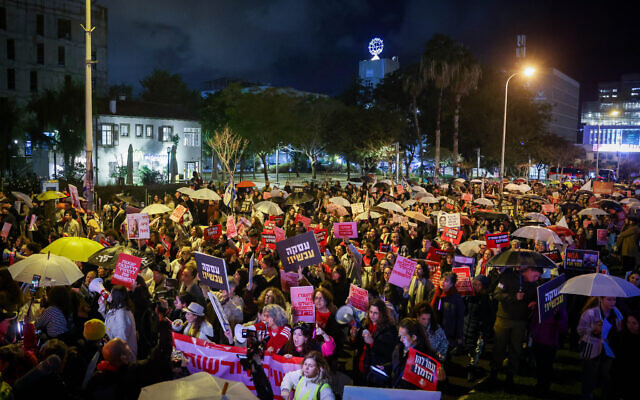
Around 100 hostages were freed under a weeklong ceasefire deal in November in exchange for the release of Palestinian security prisoners held by Israel. That deal was mediated by Egypt and Qatar.
The IDF has confirmed the deaths of 28 of those still held by Hamas, citing intelligence and findings obtained by troops operating in Gaza.
Kirby, in his TV interview, meanwhile, denied that the US is losing trust or patience in Israel’s handling of the war, saying, “We are still solidly behind our Israeli partners in their right, in their responsibility to go after Hamas, which we still recognize is a viable threat to the Israeli people. And so the support we’re providing Israel is going to continue.”
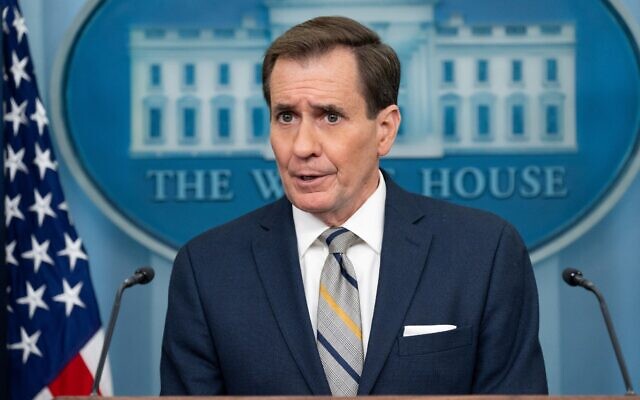
Nonetheless, he said, “we obviously want to see a reduction in civilian casualties, we want to see more humanitarian assistance get in, we want there to be care and precision in the way these operations are conducted.”
He said Israel had been “receptive” on this and had “made an effort to try to reduce the number of civilian casualties. They have relied less on air power. They have structured their ground operations in such a way as to be more targeted and precise.”
Kirby said it is put to him “all the time” that Israel “is ignoring us, that they’re not listening to us. Frankly the facts just don’t bear that out.”
Agencies contributed to this report.

comments